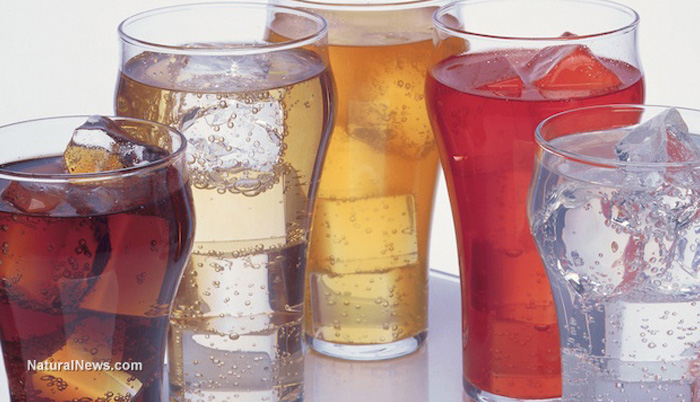![]() Home > Health
Home > Health
Many Soft Drinks Found To Be Contaminated With Lead And Cadmium

![]() October 20th, 2016 | 08:48 AM |
October 20th, 2016 | 08:48 AM | ![]() 784 views
784 views
NaturalNews.com
Those convenient plastic bottles that hold many of your favorite soft drinks could be poisoning your body with heavy metals, new research out of India has found. India's Drugs Technical Advisory Board (DTAB), a division of its government Health Ministry, recently uncovered the presence of toxins like antimony, lead, chromium, cadmium, and Di(2-ethylhexyl)phthalate (DEHP) in the plastic of soft drink containers.
Many of these metals, especially lead and cadmium, are classified by the World Health Organization (WHO) as being a "major public health concern." Lead and cadmium are both known to be carcinogenic, and are linked to causing brain damage and other neurological impairment, not to mention an array of birth defects and reproductive harm in those exposed.
According to reports, the PET plastic bottles used to hold popular soft drinks like those manufactured by Coca-Cola and PepsiCo -- as well as thousands of other beverage brands, including those marketed as being "healthy" -- are loaded with chemicals that leach into the liquid inside. Whether due to heat, cold, or simple chemical reactions, these noxious substances end up in people's bodies where they can cause chronic harm.
It was big news back in 2009 that soft drinks containing high-fructose corn syrup (HFCS) are often contaminated with mercury. As reported by The Washington Post and others, the process by which most HFCS is made involves exposing the syrupy sweetening substance to the toxic metal, which is especially harmful to developing children, many of whom chug down soda-pop on a routine basis.
Now, it's clear that soft drinks are a threat in another major way due to other hidden heavy metals that are either coming out of the plastic bottles or somehow making their way into the fizzy beverages during manufacturing. In either case, soft drinks are proving to be a death sentence in the long-term, and possibly even in the short-term depending on how much of it people consume.
Lead destroys the brain, while cadmium finishes off the vital organs
Lead is widely regarded as being one of the biggest environment threats to children, surpassing even that of tobacco smoke. Lead is known known to damage IQ and harm the brain, and at higher levels it can lead to degradation of the central nervous system, resulting in convulsions, seizures, comas, and possible death.
The California Office of Environmental Health and Human Hazard Administration (OEHHA) warns that lead can lead to birth defects and other reproductive harm, as can cadmium. Cadmium is perhaps even worse than lead in terms of its actual toxicity because it's known to damage vital organs like the kidneys, liver, as well as bones -- even at very low levels and over long periods of time.
Like with lead, cadmium can lead to serious developmental problems like decreased birth weight and neurological harm, especially in males. The reproductive potential of young boys who are exposed to cadmium is greatly diminished, the science shows, which is why its presence in popular soft drinks is that much more concerning.
A 2015 study published in the journal Toxicology Reports identified the presence of not only heavy metals but a host of other contaminants in soft drinks. One of these contaminants was alcohol, which is known to damage vital organs and cause impairment -- a major no-no for young children. This study concluded that soft drinks constitute "a major public health problem."
Based on their high sugar content alone, the Harvard School of Public Health (HSPH) advises against soft drinks, warning that they're a major risk factor for type-2 diabetes, heart disease, and various other chronic health conditions.
Source:
courtesy of NATURALNEWS
by Ethan A. Huff
If you have any stories or news that you would like to share with the global online community, please feel free to share it with us by contacting us directly at [email protected]